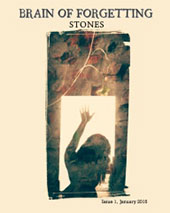 Brain of Forgetting is a new bi-annual (winter/summer) PDF and print (CreateSpace) publication of poetry, flash fiction, creative non-fiction, photography, artwork published by Brain of Forgetting Press with Editor-in-Chief Bernadette McCarthy and Associate Editor of Visual Art Tom Jordan.
Brain of Forgetting is a new bi-annual (winter/summer) PDF and print (CreateSpace) publication of poetry, flash fiction, creative non-fiction, photography, artwork published by Brain of Forgetting Press with Editor-in-Chief Bernadette McCarthy and Associate Editor of Visual Art Tom Jordan.
The name Brain of Forgetting, McCarthy tells NewPages, “is drawn from the Irish legend of Cenn Fáelad, who lost his ‘brain of forgetting’ when his skull was split open by a sword-blow in battle. Cenn Fáelad developed a photographic memory for historical and legal information, which he wrote out in verse and prose on tablets. The journal honours his legacy by providing a forum for work that engages with archaeology, history, and memory, while recognising that pure, neutral historical fact does not exist in itself: the human (mis)understanding of history is not only susceptible to forgetting, but a natural tendency to impose a narrative structure on the past and invest it with meanings determined by the present.”
Based in Cork, Ireland, the journal brings together the intellects of archaeological researcher and poet Bernadette McCarthy and photographer and art historian Tom Jordan. Unable to discover a literary journal that bridged the gap between academic research and creative output, McCarthy set up the journal in September 2014, advertising a call for submissions on the theme of “Stones.” She attended an exhibition of her friend Tom Jordan’s photography, which focused in particular on recording built heritage, and asked him to come on board as editor of visual art. This issue is now available here to purchase as well as for free download from the site.
In starting a new publication, McCarthy tells NewPages, “We hope to raise more awareness of the importance of protecting our past heritage, and how the past is not dead, but can help us reach a deeper level in our own creative work, and understand our present reality in a more complex way. The past isn’t black-and-white, and there is no one narrative of what history entails; this is a central message of Brain of Forgetting. The process of ‘digging’ into the past and uncovering new meaning is vital to individual and collective social identity, and Brain of Forgetting hopes to address this need by negotiating the boundaries between past and present, creative imagination and historic record, and lyricism and bare-boned data.”
Readers of Brain of Forgetting will find creative work that relates to the past, but, as McCarthy says, “this work must have a contemporary edge.” A variety of writers and artists from all over the world were published in Issue One, many of whom had quite diverse backgrounds. Some were professional archaeologists, anthropologists, medievalists, and geologists; others were professional writers and artists who find the past to be a fruitful source of inspiration. “All work published was chosen not simply because it related to the past,” McCarthy stresses, “but on the basis of its quality and originality—subjective indeed, but we try our best!”
The editors are excited about the upcoming Issue Two, which will feature new poetry by Afric MacGlinchey, as well as new translations by Rosalin Blue of the poetry of August Stramm, who died in World War I.
Looking to the future, in an ideal issue of Brain of Forgetting, Bernadette McCarthy would love to include work from one of her favorite archaeologist-poets, Paddy Bushe, and perhaps creative non-fiction by the likes of Christine Finn, author of Past Poetic: Archaeology in the Poetry of W.B. Yeats and Seamus Heaney. In general, however, she is interested in original work from anyone that engages with the past, regardless of whether s/he is an established or emerging writer.
Tom Jordan would love to publish a previously undiscovered essay by Hubert Butler, author of Ten Thousand Saints, who bridged the gap between history and imagination in his writings. He is also a fan of Irish artist Robert Gibbings and cosmologist/author Carl Sagan, but in general he welcomes anything well-done that relates to the chosen theme of the journal.
For now, McCarthy says, “Surviving is our main goal at present, and perhaps gathering enough funding together to be able to pay a local company to do the printing for us – though we are grateful for the existence of online independent publishing platforms. We would also like to try and reach a wider readership, and publish an even more diverse range of writers. So far, most of the work submitted has emanated from Ireland, the UK, Canada and the US. It would be great to feature more work from the wider Anglophone world e.g. parts of Africa, Asia, and Australasia where English is spoken.”
Submissions for Issue Two, based around the theme of “Poppies,” are open until the end of March. Up to four poems or two pieces of flash fiction (900 words max.) can be submitted, while submissions of creative non-fiction (one piece, 1200 words max), as well as photography and other artwork are also welcome. While the journal is primarily English-language, work in other languages can be considered if accompanied by English translation suitable for publication, while translations of pre-1500 English-language work are gladly considered. Simultaneous submissions are accepted, as long as the contributor informs the journal if a piece is published elsewhere. All work submitted must be previously unpublished in print or online. See Brain of Forgetting‘s website for more information.

 I was thrilled to see
I was thrilled to see  On Writing: An Occassional Series
On Writing: An Occassional Series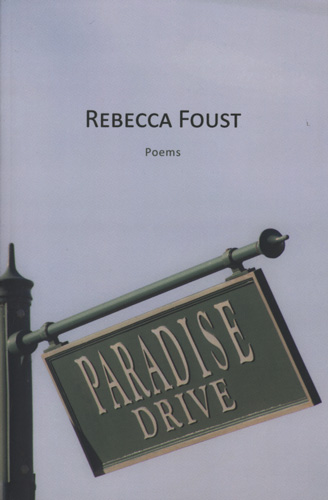 Press 53 has awarded Rebecca Foust the winner of the
Press 53 has awarded Rebecca Foust the winner of the  Black Mountain Institute’s print issue of Witness
Black Mountain Institute’s print issue of Witness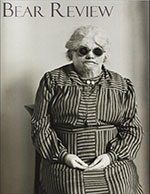 Based out of Kansas City and Seattle,
Based out of Kansas City and Seattle,  Rachel Thompson’s Editor’s Note for the newest issue of
Rachel Thompson’s Editor’s Note for the newest issue of  Jasmine Sawers piece “The Weight of the Moon” was chosen, as Chinquee notes, beecause “This piece represents, to me, what it means to be in love. So in love that one wants to capture the being one’s in love with and keep it to one’s self. Not realizing, at first, that this may produce harm. Ultimately this piece renders, to me, one’s growth, the grief in letting go, and what a love that is in itself.”
Jasmine Sawers piece “The Weight of the Moon” was chosen, as Chinquee notes, beecause “This piece represents, to me, what it means to be in love. So in love that one wants to capture the being one’s in love with and keep it to one’s self. Not realizing, at first, that this may produce harm. Ultimately this piece renders, to me, one’s growth, the grief in letting go, and what a love that is in itself.”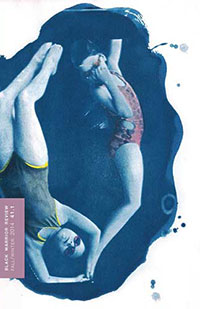 Fiction Contest judged by Judge Lily Hoang
Fiction Contest judged by Judge Lily Hoang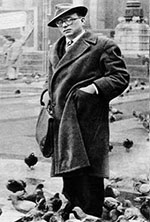
 1st Place
1st Place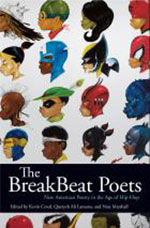 . . . this issue of Poetry, timed for National Poetry Month, features a selection of BreakBeat poets: in the pages that follow, readers will experience a “new American poetry in the age of hip-hop,” a resounding allusion to the resonant and groundbreaking 1960 anthology edited by Donald M. Allen, The New American Poetry 1945–1960. In fact, our feature is an excerpt from the book
. . . this issue of Poetry, timed for National Poetry Month, features a selection of BreakBeat poets: in the pages that follow, readers will experience a “new American poetry in the age of hip-hop,” a resounding allusion to the resonant and groundbreaking 1960 anthology edited by Donald M. Allen, The New American Poetry 1945–1960. In fact, our feature is an excerpt from the book 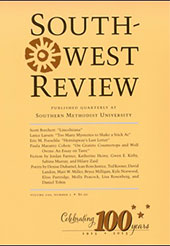 Established in 1915, frist as The Texas Review at the University ot Texas at Austin,
Established in 1915, frist as The Texas Review at the University ot Texas at Austin, 
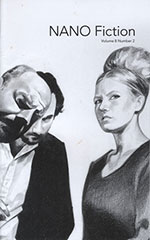 NANO Fiction
NANO Fiction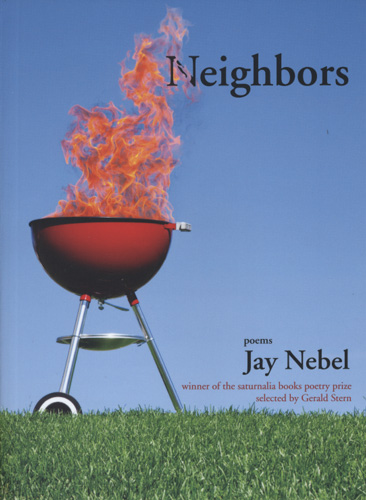 The
The 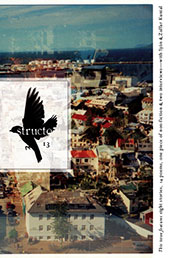 Structo
Structo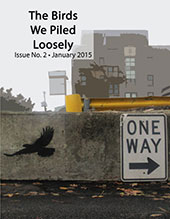 The Birds We Piled Loosely
The Birds We Piled Loosely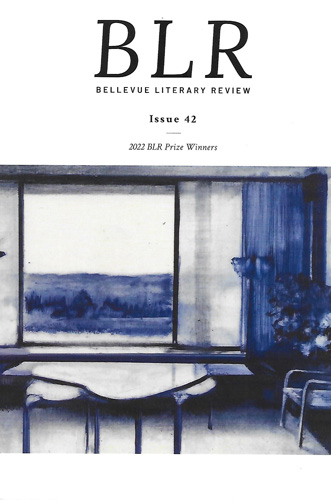 The winner of the Goldenberg Prize for Fiction, “Autobiography” by Carla Hartenberger—chosen by judge Chang-rae Lee—follows a set of Canadian conjoined twins who must wrestle with the physiology and psychology that both keep them together and wrench them apart.
The winner of the Goldenberg Prize for Fiction, “Autobiography” by Carla Hartenberger—chosen by judge Chang-rae Lee—follows a set of Canadian conjoined twins who must wrestle with the physiology and psychology that both keep them together and wrench them apart.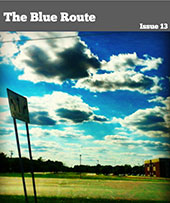
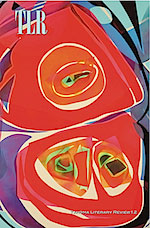
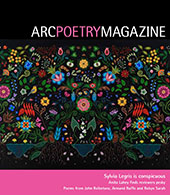



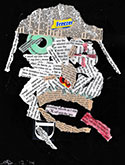

 Buffalo Almanack
Buffalo Almanack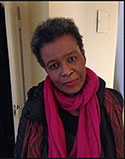
 Brevity
Brevity The Holocaust Remembrance Series for Young Readers
The Holocaust Remembrance Series for Young Readers Robin McLean’s first short story collection, Reptile House, will be published May, 2015 by BOA Editions, Ltd. A finalist for the Flannery O’Connor Short Story Prize in 2011 and 2012, Reptile House is the winner of the
Robin McLean’s first short story collection, Reptile House, will be published May, 2015 by BOA Editions, Ltd. A finalist for the Flannery O’Connor Short Story Prize in 2011 and 2012, Reptile House is the winner of the 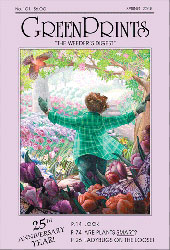 GreenPrints “The Weeder’s Digest”
GreenPrints “The Weeder’s Digest”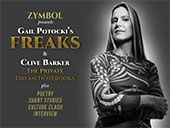
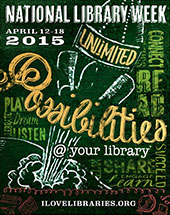 First sponsored in 1958,
First sponsored in 1958, 

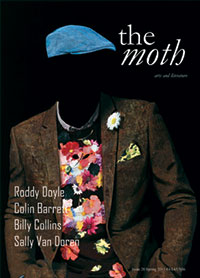
 First place: Christa Romanosky [pictured], of Pittsburgh, PA, wins $1500 for “Every Shape That the Moon Makes.” Her story will be published in Issue 96 of Glimmer Train Stories.
First place: Christa Romanosky [pictured], of Pittsburgh, PA, wins $1500 for “Every Shape That the Moon Makes.” Her story will be published in Issue 96 of Glimmer Train Stories. I’m not sure what it is, but in the most recent batch of lit mags coming through NewPages World Headquarters I’ve found a recurring subject: Dogs.
I’m not sure what it is, but in the most recent batch of lit mags coming through NewPages World Headquarters I’ve found a recurring subject: Dogs.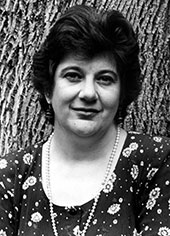 Blue Heron Review
Blue Heron Review
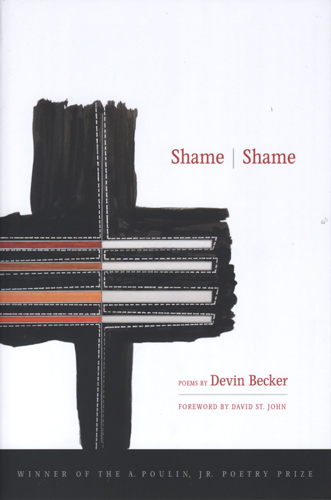 Devin Becker’s debut collection
Devin Becker’s debut collection